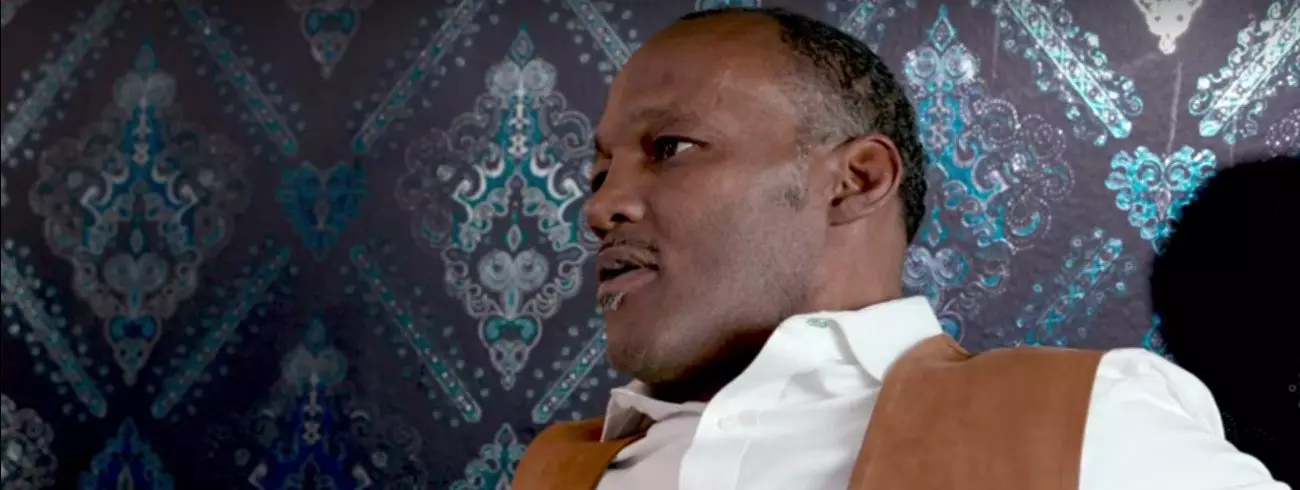Donald Curry, once hailed as the torchbearer of boxing in the 1980s, captured the hearts of fans worldwide with his electrifying skills and charismatic persona. With accomplishments that bore the weight of greatness, Curry was best known for his reign as the welterweight and later light-middleweight champion. Throughout his career, he was often compared to the legendary Sugar Ray Leonard, a testament to his undeniable talent and potential. Yet, the glory of his prime stands starkly in contrast to the current reality he faces—a grim struggle with mental health that has placed him in the center of a painful battle against Traumatic Encephalopathy Syndrome.
At 63, Curry’s situation is dire as he confronts the lasting impacts of a sport characterized by brutal bouts and rigorous physical combat. The announcement of his condition, made by his son Donovan, sheds light on the harsh realities that many former athletes face post-retirement. Traumatic Encephalopathy is a debilitating disorder that leads to severe impairments in cognitive functions, posing significant challenges to his everyday life. The ironic truth is that while Curry once faced opponents in the ring with remarkable strategy and finesse, today he battles an invisible adversary that threatens his well-being and quality of life.
In a heartfelt plea shared across social media, Donovan Curry opened up about his father’s struggle, calling for help in securing specialized care. His statements underscore a deeper issue within the realm of professional sports—the lack of adequate post-care for athletes once the spotlight fades. Curry’s earlier experiences in a supportive church facility in Fort Worth, facilitated by the late trainer Paul Reyes, provided a glimmer of hope. However, tragic circumstances have led to a need for new arrangements, as Donald now finds himself in a hotel, facing uncertainty regarding his future.
This poignant situation speaks volumes about the deterioration that can occur after a sports career. Many athletes, although celebrated during their peak, often find themselves unsupported when they transition out of their competitive lives, particularly those who suffer from conditions resulting from past injuries. Donovan’s desperate search for a healthcare facility specializing in Traumatic Encephalopathy not only highlights the depth of his father’s struggles but also reveals a larger, systemic inadequacy—an alarming lack of resources for athletes dealing with severe health issues post-retirement.
The outpouring of support from the boxing community for Donald Curry emphasizes the unconditional reverence fans and fellow fighters hold for him. His legacy is not just tied to the medals and titles he earned but also to the joy and excitement he brought to a generation of boxing fans. The boxing world has stood by him, reflecting a deep sense of loyalty and admiration that extends far beyond the confines of the ring. In this challenging time, it is crucial that we rally together to honor what Curry has given us as fans and to ensure that he receives the assistance he desperately needs.
His story mirrors that of many greats within the sport who have faced similar adversities—great fighters like Wilfred Benitez, who have tragically succumbed to the relentless effects of the sport. Acknowledging these harsh realities is essential in fostering a culture that prioritizes the mental and physical welfare of athletes long after their careers end. In pursuit of a solution, we must advocate for fundraising and awareness campaigns that shine a spotlight on the need for dedicated healthcare resources for former athletes suffering from such disorders.
As we reflect on Donald Curry’s illustrious career and his current plight, it becomes increasingly important to extend compassion and support, both as a community of boxing enthusiasts and as advocates for athlete welfare. By coming together to provide resources, engage in fundraising efforts, and raise awareness about conditions like Traumatic Encephalopathy, we can ensure that no athlete feels abandoned or forgotten. The legacy they leave behind should come not only in the form of trophies and titles but also in the assurance of a safety net for their well-being after the curtains close on their careers.
Donald Curry’s battle is not merely his own; it serves as a stark reminder of the vulnerabilities that lie beneath the triumphant images of sports heroes. It is an urgent call for society to rethink and reform how we support our athletes—a cause that transcends the world of boxing and reaches into the heart of humanity. Now is the time to act, to create lasting change, and to uphold the dignity of those who have dedicated their lives to the sport.

